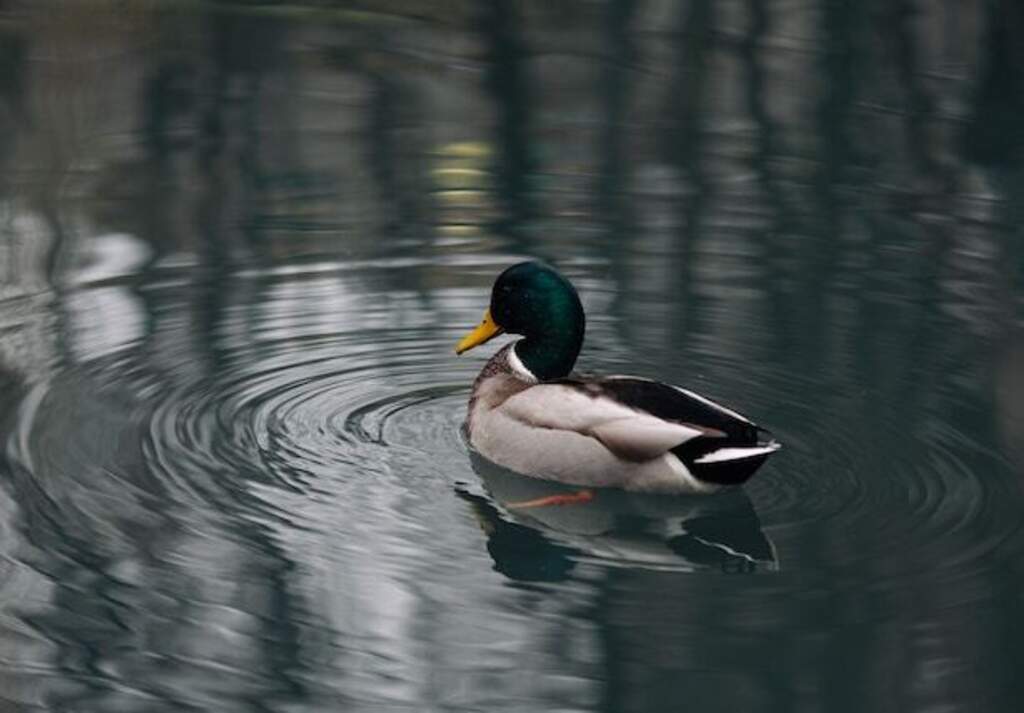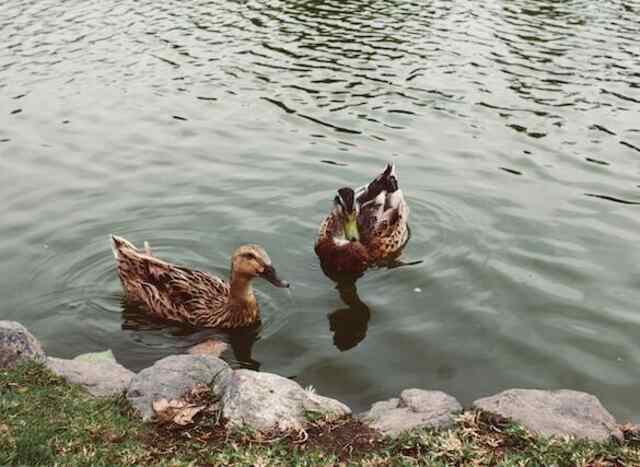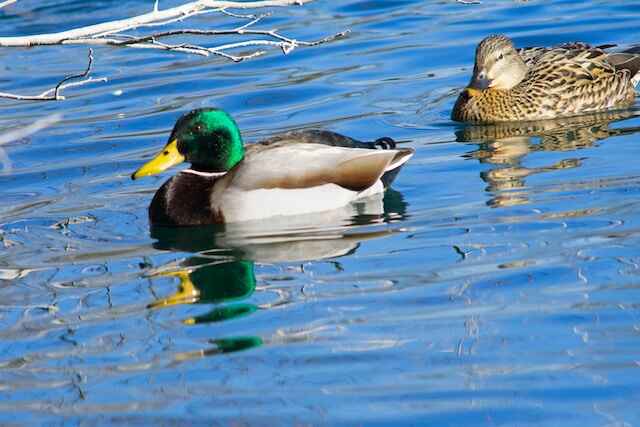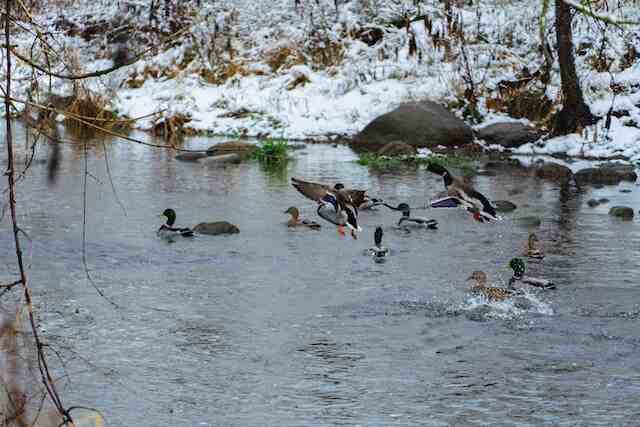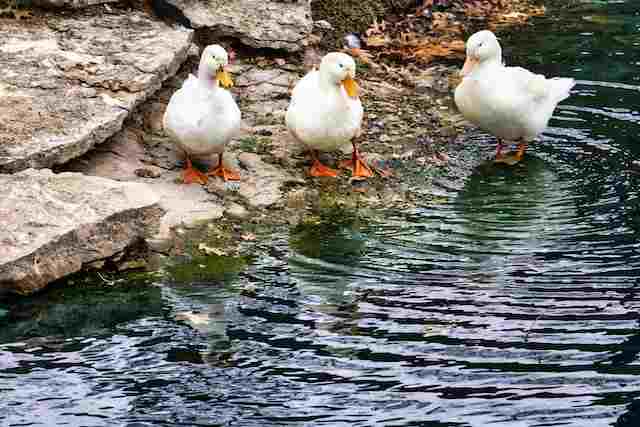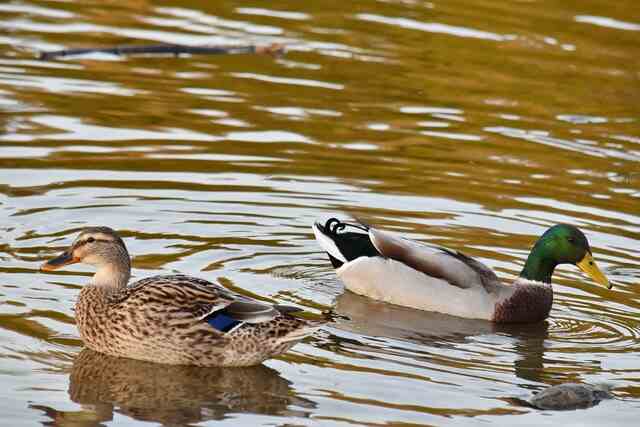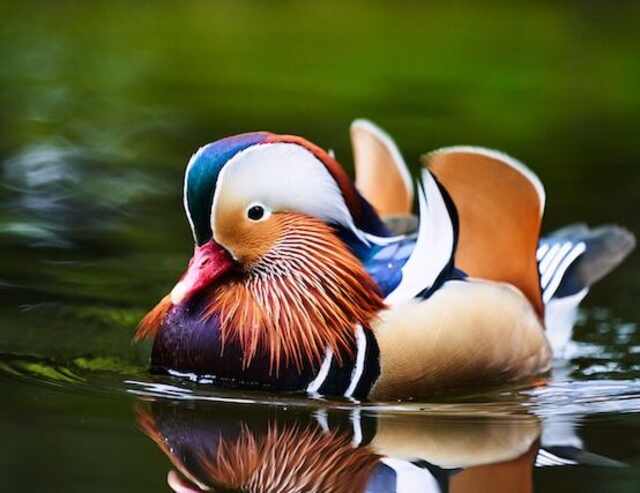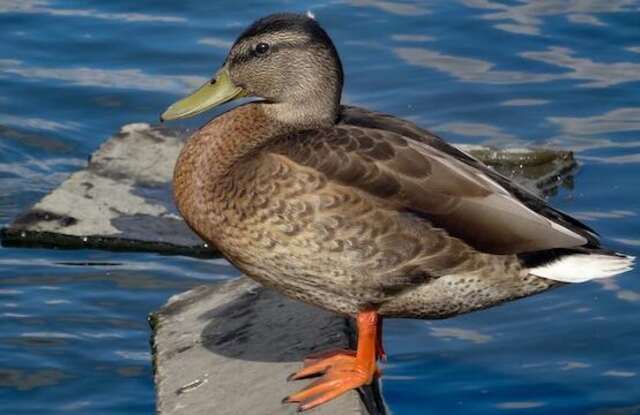Quack, quack! “Do Ducks Need Water?” It’s a question that has puzzled both bird enthusiasts and rubber ducky collectors alike. The short answer: absolutely! But hold your feathers, my friend, because there’s much more to this story.
Dive into our feathered adventure as we explore the reasons why water is the liquid gold in a duck’s life. Get ready for splashy surprises and discover the secrets that make ducks water-loving superstars.
Table of Contents
- 1 An Introduction to Ducks and Their Habitat
- 2 The Big Question: Do Ducks Need Water?
- 3 Yes, Ducks Need Water!
- 4 How much water do ducks need?
- 5 What types of water do ducks prefer?
- 6 What happens if ducks don’t have access to water?
- 7 Conclusion
- 8 FAQs: Do Ducks Need Water?
- 8.1 Do ducks need water for survival?
- 8.2 How much water do ducks need?
- 8.3 Can ducks live without water?
- 8.4 Why do ducks need water to swim?
- 8.5 Do ducks need water to eat?
- 8.6 Can ducks drink any type of water?
- 8.7 Can ducks get sick without water?
- 8.8 Do ducks need a pond to be happy?
- 8.9 Can ducks survive with only a small amount of water?
- 8.10 Do pet ducks need access to water?
- 9 Author
An Introduction to Ducks and Their Habitat
Ducks are fascinating birds that have captured the hearts of people all around the world. These birds are part of the family Anatidae, which also includes swans and geese.
They are found in a wide variety of habitats, from lakes and rivers to wetlands and even urban areas. Ducks are known for their unique physical features such as their webbed feet, waterproof feathers, and broad bills.
These adaptations enable them to survive in aquatic environments, where they can dive underwater to find food or escape predators. The habitat of ducks varies depending on the species.
Some ducks prefer freshwater, while others can tolerate brackish or saltwater environments. For example, mallards are commonly found in ponds and streams, while sea ducks like eiders inhabit coastal areas.
The Big Question: Do Ducks Need Water?
The simple answer is yes – ducks need water to survive. In fact, water is essential for their survival as it plays a critical role in their daily activities such as swimming, feeding, and grooming.
Ducks are considered aquatic birds because they spend most of their time in or near water.
They have evolved over time to become highly adapted to this environment – from webbed feet that help them swim efficiently to specialized glands that keep their feathers waterproof.
Without access to water, ducks cannot perform these essential activities properly, which can lead to health problems like feather rot or infections.
As we will explore further in this article, providing a safe source of clean water is crucial for keeping our feathered friends healthy and happy.
So now you know – if you want pet ducks or enjoy watching them in nature – remember that providing access to water is vital for these amazing birds!
Yes, Ducks Need Water!
Ducks are aquatic birds
Ducks are aquatic birds that can be found in both freshwater and saltwater environments all over the world. They belong to the family Anatidae, which also includes geese and swans.
These birds have unique adaptations that make them perfectly suited for life in and around water. One of these adaptations is their webbed feet, which allow them to paddle through the water with ease.
Ducks also have waterproof feathers that keep them dry while they swim. These feathers are coated with oil from a special gland near their tail, which they spread across their bodies with their bills.
Water is essential for their survival
Water is essential for the survival of ducks. They need it for a variety of reasons such as digestion, thermoregulation, and hydration.
In fact, ducks drink more water proportionally than any other bird. Ducks also use water as a source of food.
They are omnivores and feed on a variety of aquatic plants and animals such as algae, snails, insects, frogs and small fish. Some species even dive underwater to catch prey.
Without water, ducks would not be able to survive for very long. They would quickly become dehydrated and unable to digest food properly.
They use water for various activities such as swimming, feeding, and grooming
Swimming is one of the most important activities that ducks use water for. It allows them to escape predators quickly and efficiently while using up less energy than flying.
Swimming also helps keep ducks cool in hot weather. In addition to swimming, ducks also use water for feeding and grooming purposes.
When feeding on floating plants or insects at the surface of the water, they dip their heads under briefly to grab food with their bills or filter it out from the surrounding environment using a specialized filtering apparatus in their beaks.
When ducks are grooming, they often submerge themselves completely or partially in water.
This helps to keep their feathers clean and free of parasites, which can cause health problems. Water is truly an essential part of a duck’s life.
Without it, they wouldn’t be able to survive or thrive. In the next section we will discuss how much water ducks need and what types of water they prefer.
How much water do ducks need?
Ducks are aquatic birds that require water to survive. They use water for various activities such as swimming, feeding, and grooming.
The amount of water that ducks need depends on their size and species. Typically, ducks require a minimum depth of 4 to 6 inches of water to swim comfortably.
This allows them to fully submerge themselves and flap their wings without touching the bottom. If the water is too shallow, they may not be able to dive or swim properly.
In addition to deep water, ducks also need access to shallow areas where they can dip their bills and clean themselves.
Shallow areas should have a maximum depth of 1–2 inches and provide enough room for ducks to stand comfortably while cleaning their feathers.
These areas are important because they allow ducks to preen or fluff up their feathers while keeping them dry. Ducks also prefer calm waters over rough waters when swimming or diving.
So if there is a nearby source of running or moving water like a river or stream, having calm pools will attract more ducks than turbulent ones.
Providing an adequate amount of clean water is vital for the health and well-being of these amazing birds.
Ducks that are kept in areas without proper access to safe drinking water can develop serious health problems such as dehydration, heat stress, or respiratory infections.
So it’s essential for duck keepers or those who want to attract wild fowl into their gardens with bird baths or ponds to ensure perfect hygienic conditions around the gathering site at all times.
What types of water do ducks prefer?
Freshwater is the way to go
Now that we have established that ducks need water to survive, it’s important to understand what kind of water they prefer. The answer: freshwater! Ducks love ponds, lakes, and rivers that offer safe and clean environments for them to swim, feed, and socialize.
In fact, many species of ducks are considered “waterfowl” and have adapted over time to be fully aquatic birds. One reason why ducks prefer freshwater sources is because they rely on these bodies of water for their food.
Many aquatic plants grow in these areas which provide a hearty meal for the hungry birds. Additionally, freshwater ponds and lakes often have insects living within them which can serve as a tasty snack for the feathered animals.
Saltwater is a no-go
While freshwater is essential for duck survival, saltwater can be quite harmful. Ducks do not like saltwater because it can damage their feathers and make them sick.
Saltwater contains high levels of salt, which can irritate the birds’ eyes and skin, causing discomfort or worse – infections.
Moreover, exposure to saltwater can ruin the waterproofing effect of duck feathers by breaking down natural oils found in their plumage, making it hard for them to float on water.
In extreme cases where they are exposed too long in such an environment without access to fresh water, some ducks may even die due to dehydration since salt-water does not provide adequate hydration for these avian creatures.
It is vital that we take note that access to safe freshwater sources should be prioritized when providing habitats or caring for our feathered friends so that they may continue living healthy lives with all the benefits of having access to clean fresh water!
What happens if ducks don’t have access to water?
Ducks are aquatic birds, which means that water is a critical aspect of their lives. Without access to water, ducks cannot swim or groom themselves properly. This can lead to a variety of health problems that can adversely affect the life of the duck.
Feather Rot
Feather rot is a common health problem that occurs when ducks do not have access to water. Without regular dips in the water, their feathers become dirty and clogged with debris.
This can create an ideal environment for bacteria and fungi to grow, which leads to feather rot. During the early stages of feather rot, you may notice small patches of discolored feathers on your duck’s body.
As time goes on, these patches will become larger and unsightly. If left untreated, feather rot can spread throughout the duck’s body and lead to issues such as infections.
Infections
Without proper grooming with water, ducks are more likely to suffer from infections. When their feathers are dirty or clogged with debris, it provides an ideal environment for bacteria and fungi growth.
These microorganisms can cause various infections such as bacterial dermatitis or fungal infections.
Bacterial dermatitis is a skin infection characterized by redness and inflammation around the affected area. It often appears near the base of the feathers, where bacteria thrive in damp conditions.
Fungal infections are also common among ducks without proper access to water because fungi thrive in damp conditions too.
The most common fungal infection amongst ducks is Aspergillosis which causes respiratory disease resulting from Aspergillus fumigatus spores present mainly in moldy feed.
Overall Health Issues
Without regular access to clean water sources, ducks may suffer from dehydration, leading to digestive issues such as constipation caused by dry feed intake without sufficient hydration or wetting.
This can result in an imbalance of bodily fluids, which can cause other health problems such as a weak immune system and even death.
Water is an essential aspect of the life of ducks. Without access to water, they cannot survive or thrive as they should.
As a duck owner or enthusiast, it is important to provide your ducks with regular access to clean water sources so that they can swim and groom themselves properly.
In return, this will help keep them healthy and happy for years to come.
Conclusion
Recap on the Importance of Water for Ducks
It is clear that water is essential for the survival and well-being of ducks. As aquatic birds, they need water to swim, feed, and groom themselves.
Without access to water sources such as ponds, lakes, or rivers, ducks may suffer from health problems such as feather rot or infections.
Therefore, providing clean and safe water sources for these amazing birds is crucial.
Encourage Readers to Provide a Safe and Clean Source of Water for These Amazing Birds
If you are fortunate enough to have ducks in your area or if you are considering raising ducks on your property, it is important to provide them with a safe and clean source of water. A pond or small pool can be constructed relatively easily with simple materials.
Ducks prefer shallow areas where they can dip their bills and clean themselves, in addition to deeper areas where they can swim around comfortably. It is also important to keep the water source clean by regularly removing debris such as fallen leaves or dead insects.
By doing so, you not only ensure a healthy environment for the ducks, but also help prevent the spread of diseases between them. We should remember that ducks are fascinating creatures with unique behaviors that make them an integral part of our ecosystem.
By providing them with access to suitable water sources and observing their natural behavior around it, we may learn more about these wonderful creatures, furthering our understanding as responsible stewards of nature.
Let’s make sure we take care of our duck friends!
FAQs: Do Ducks Need Water?
Do ducks need water for survival?
Yes, ducks require water to thrive and maintain their health.
How much water do ducks need?
Ducks need enough water to swim, bathe, and submerge their heads for feeding.
Can ducks live without water?
While ducks can survive without water for short periods, access to water is crucial for their overall well-being.
Why do ducks need water to swim?
Swimming helps ducks exercise, keeps their feathers in good condition, and aids in the natural grooming process.
Do ducks need water to eat?
Ducks rely on water to find food, such as aquatic plants, insects, and small aquatic organisms.
Can ducks drink any type of water?
Ducks can drink fresh, clean water from various sources, including ponds, lakes, and rivers.
Can ducks get sick without water?
Insufficient access to water can lead to health issues for ducks, including problems with their feathers and digestive system.
Do ducks need a pond to be happy?
Ducks can be content without a pond, but providing them with a water source is beneficial for their physical and mental well-being.
Can ducks survive with only a small amount of water?
Ducks can manage with smaller water sources like birdbaths or shallow pools, but larger areas allow for natural behaviors and better exercise.
Do pet ducks need access to water?
Even pet ducks should have access to water for swimming, bathing, and maintaining their overall health.

